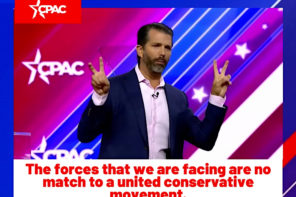As discussed earlier this week on RD, the Orthodox Church in America recently released an encyclical that, on the surface at least, recapitulates the long-held doctrines of the OCA concerning same-sex marriage and gay rights, reinforcing heterosexual hegemony as the only moral gateway to salvation. Going beyond the edict and long-held doctrines, however, the Synod of the OCA also included a clause aimed at the suppression of any and all Orthodox academic research and free speech that relates to LGBTQAI persons and their rights:
We call upon all clergy, theologians, teachers, and lay persons within the Orthodox Church in America never to contradict these teachings by preaching or teaching against the Church’s clear moral position; by publishing books, magazines, and articles which do the same; or producing or publishing similar content online.
I urge readers to examine the full encyclical. However, from the excerpt above it’s quite clear that, as Katherine Kelaidis argues, religious authoritarianism is on the rise in the OCA—and perhaps in American Orthodox Christianity more broadly.
As a social science researcher of Orthodoxy, gender, sexuality, race, and politics in the United States, I typically write about the Russian Orthodox Church Outside of Russia (ROCOR), but I happen to also be a longtime member of the OCA. As a social critic and caretaker of Orthodoxy, it’s clear that this latest OCA encyclical is not meant to simply reinforce the teachings of this Orthodox jurisdiction on sexuality and gender (much of which was already put forth at an AAC meeting in 1992, a period of time when the culture wars were also in full swing); rather, this newest statement is aimed specifically at silencing research and dialogue about the Orthodox LGTBQAI community.
In other words: Orthodox academic free speech is under threat.
As an anthropologist who thinks about religion as social production, the questions for me are: Why now? What does this mean for critical thought? and What is this in response to?
Orthodox Christianity finds its theological grounding in tradition and Church councils. However the numerous councils that the Church returns to for wisdom on dogma and other spiritual issues have been the product of their particular social time periods, and a result of lengthy debate and extended dialogue. Debate has, therefore, been a valuable tool throughout Church history to work out theological issues in relationship to the cultural moment. Beyond that, theological opinions (theologoumena) have also historically been an integral part of the Church, allowing it to adapt to local customs, places, and changing times, something that the statement fails to acknowledge in its assumption that academic opinions must be dogmatically aligned with the Synod.
Certainly, there are core dogmas (such as the divinity of Christ) that aren’t up for debate within Orthodox academic circles; but many other issues have been and are open to critical inquiry and discussion. This latest encyclical, ironically dedicated to the theme “Becoming Vessels of Grace,” attempts to put an end to the history of dialogue and critique within the Orthodox Church—among OCA theologians and other academics at least—through the threat of disciplinary action. The document states:
Any clergy, theologian, teacher, or lay person who contravenes our directive thus undermines the authority of the Holy Synod of Bishops of the Orthodox Church in America by disregarding the Holy Synod’s consistent and unwavering teaching on these matters. . .. Those who refuse correction open themselves to ecclesiastical discipline.
While the document only uses the terms “same-sex” and “[those who] distort humanity’s God-given sexual identity” to refer, ostensibly, to all LGBTQAI+ persons, it’s quite direct in its theological refusal of anything outside of the singular notion of heterosexuality.
The matter of who might be corrected for their ideas and academic considerations is a bit murkier. Who will be subject to this punitive form of arrogant spirituality? Certainly, if a clergy member or layperson is employed by the OCA, the Synod of Bishops have the authority to restrict their right to free academic speech and thought.
Academic freedom, which was arguably founded in Medieval Christianity, has always been subject to institutional affiliation. But the OCA document doesn’t specify who might be at risk. Does it pertain to OCA lay members employed at institutions and/or writing academic articles for publications unaffiliated with the OCA?
There is (or at least should be) a clear distinction between what the institutional Church teaches and what it explores intellectually. There should also be a distinction made between those who speak on behalf of the Church in a representative capacity and those who speak on their own authority as researchers and scholars of Orthodoxy. If no distinction is made, then Orthodox academics have come face-to-face with a type of religious authoritarianism born out of the fear of inquiry and critique.
Authoritarianism, in any form, always seeks to silence marginalized voices and to take away academic freedom. Examples of suppression pepper our history books, but we don’t have to look much further than Putin’s current regime of terror to see it occurring in real time; notably, in the recent imprisonment of a Russian Orthodox priest for speaking out against the war in Ukraine.
In the United States, we’re witnessing both the political and religious authoritarianism that have long been part of the American social structure, and that were extensively cultivated during the Trump years, continuing to flourish through the revitalized culture wars rhetoric that has taken on transnational dimensions. Christian Nationalism is now used as an identifier by politicians wanting to unite church and state. Panic over school curricula and books have led to Florida’s “Don’t Say Gay” bill. Historically conservative churches, such as the Orthodox Church, are seeing an increase in radical traditionalists converting to the faith and bringing with them dangerous, even violent ideas about race, gender, and sexuality.
It’s within the cultural context of a surging far-right politics and violence in the United States that we find religious communities more open about their desire for church-state unification, marked by, among other things, purity—racial, sexual, and spiritual. Within the Orthodox context, I label this new type of religious authoritarianism as Reactive Orthodoxy; it’s a melding of far-right ideologies, Christian nationalism, and Traditionalism.
That the Synod of the OCA would renew their stance on sexuality and gender isn’t shocking; what does surprise me, however, is their use of reactionary and authoritarian tactics to take on what they appear to believe are moral thought crimes. The disciplinary statement issued by the Synod suggests that they might be taking a page from the playbook of far-right Orthodox ideologues online who call for the excommunication and even “the purge” of American Orthodox scholars.
For years the Orthodox Christian Studies Center at Fordham University (not affiliated with the OCA) has been one of the most engaged institutions in the academic study of Orthodox Christianity. And for years the Center has been maligned by conservative and far-right Orthodox, who often use the term “Fordhamite,” seemingly as a riff on the slur sodomite, suggesting that critical debate and dialogue about LGBTQAI issues is accommodationist at best, and “evil” at worst.
I, and many of my colleagues who study Orthodoxy, have been threatened, harassed, and engaged for ill intent by conservative and far-right Orthodox Christians, typically online, who believe that our scholarly work is an attempt to somehow subvert the Church’s teachings and the authority of the hierarchy. As I’ve written about previously for RD, the goal of these social media campaigns is to draw together far-right political ideology and religious fundamentalism in an attempt to promote a particularly narrow, antagonistic Orthodox.
Recently, along with several other Orthodox scholars, I was invited to think about the role of secularism in Orthodoxy today for a diocesan periodical. In my article, I note the problem of religiopolitical radicalism in the Orthodox Church. This is a problem that many hierarchs are either oblivious to or actively embrace; and given this latest encyclical, it makes me fear that the latter might be the case.
OCA hierarchs have failed to acknowledge the dangerous spread of far-right ideology in Orthodoxy and in their own jurisdictions; on the contrary, the OCA’s flagship seminary, St. Vladimir’s, invited political pundit Rod Dreher, who’s openly enamored with Hungarian authoritarian Viktor Orban, to be the speaker for a prestigious keynote address generally reserved for academic theologians. Dreher describes progressive politics as “soft totalitarianism,” an idea he markets well among his ideological base, including recently with Jordan Peterson, a celebrity among many of the Reactive Orthodox with whom I’ve worked. Dreher believes the left is focused on what he calls “thought crimes.” Ironically, this is exactly what the OCA intends to do with academics, according to its latest encyclical.
Totalitarianism, authoritarianism, fearful purity partitioning—we could call this latest move by the OCA hierarchy many things.
One thing is certain, however: In allowing Christian nationalism and reactionary traditionalism to gain a foothold in the OCA, the Bishops have seemingly made themselves vulnerable to the contagion of far-right politics, a toxic ideology bent on destroying free intellectual engagement, social critique, and valuable dialogue about pressing issues to people of every ideology and identity. In doing so, they’ve become active participants in the culture wars they claim to avoid.
###
The author would like to thank Gregory Tucker and Robert Saler for their beneficial input.





